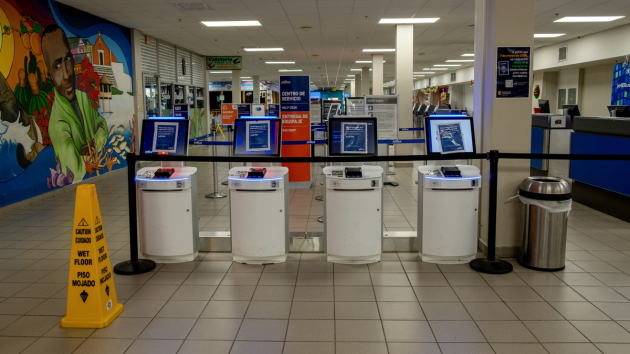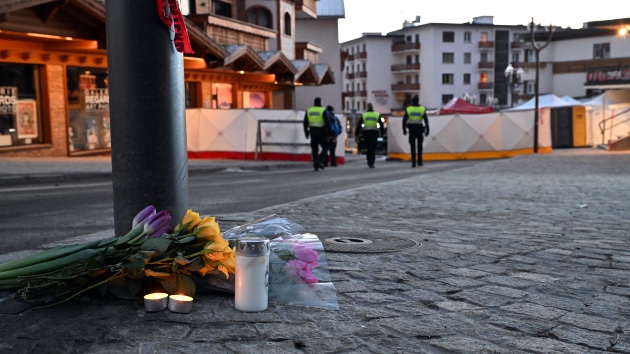IDF soldiers say repeated warnings of Hamas activity prior to Oct. 7 attacks were ignored
Written by ABC Audio All Rights Reserved on June 28, 2024

(NAHAL OZ, Israel) — It was a sisterhood built around service: there were birthdays away from home, costume parties, TikTok dance videos and lots of laughter. Some of the young soldiers of the Israel Defense Forces’ Unit 414 were there by choice, others completing their mandatory military service after high school.
Stationed at the Nahal Oz IDF base, less than half a mile from Gaza, they were known as “the eyes of the military”– monitoring hundreds of surveillance cameras overlooking the border, 24/7. They were always watching and always on high alert.
“It felt like something out of the ordinary was about to happen,” said Roni Lifshitz, an observation soldier who was part of Unit 414 but happened to be away at a training on Oct. 7, 2023, when Hamas launched a surprise terrorist attack on Israel.
Lifshitz said she risks serious consequences in speaking to a news organization.
“The IDF may react. To tell you the truth, I don’t care. They abandoned my friends, I have no reason to listen to them,” she said. “If [my friends] were here, they would be talking for sure.”
According to Lifshitz, in the days leading up to Oct. 7, her unit was reporting unusual activity in Gaza on a daily basis — so much so that she says there was apparently a running joke on base: Who would be on duty the day Hamas attacked?
Just days before Oct. 7, she said she saw “10 pickup trucks, 300 meters away. It was unusual to see those. They stopped at every Hamas post, looking at our cameras, at the fence, at the gates, pointing,” she said. “The other thing was the training that we saw deeper inside Gaza, very much like a military routine, rolling over, shooting.”
Her account lines up with what Ori Asaf said he heard from his girlfriend, Sgt. Osher Barzilay, a communications officer who was killed inside the Nahal Oz command center. Asaf showed ABC News text messages Barzilay sent him just two weeks before Oct 7.
“All the violent disturbances and incendiary balloons are in our sector,” Barzilay wrote. “3 violent disturbances, people armed with weapons and explosives. The fence is destroyed.”
Asaf said Barzilay couldn’t tell him everything, since much of the information was classified. But he said she repeatedly told him she saw Hamas burying explosives near the border.
Lifshitz said the warning signs were there, but those at the top didn’t take them seriously.
“We were completely ignored, they belittled us,” she said. “No one really listened to us, mainly because I am not an officer. Because I am just a simple 20-year-old who knows nothing.”
Last November, Israeli Prime Minister Benjamin Netanyahu told ABC News: “The responsibility of a government is to protect the people. Clearly, that responsibility wasn’t met. And we’ll have a lot of questions, a lot of investigations. But I have now one responsibility. The responsibility is to defeat Hamas.”
Eyal Eshel heard similar stories from his daughter Roni Eshel, who was also part of Unit 414, and Roni Lifshitz’s best friend. She was just 19.
“‘Dad, the cameras on the fence, in this point, are not working. Dad, there is a problem in the fence here.’ Nobody came to fix it,” he said.
In a chilling phone conversation obtained exclusively by ABC News, Roni Eshel can be heard telling her mother Sharon on Sept. 27 that she’s overwhelmed by what she’s seeing.
“Listen, three days in a row, attempted infiltrations, today there was an attack at Karni, explosive devices,” she said.
Eyal Eshel took ABC News inside what’s left of the Nahal Oz base, and into the command center where his daughter would have watched Hamas’ incursion, reporting it in real time — until their cameras were neutralized.
When over a hundred Hamas fighters eventually reached the base, they set the command center on fire. Many of the young observation soldiers were trapped inside and burned alive.
“They didn’t find dog tags, they didn’t find bodies,” said Eshel. “[They found] pieces. You can understand what I’m saying. Pieces.”
There were only a few combat soldiers stationed at the base that day who tried to fend off the attackers. Lifshitz said observation soldiers are told their cameras are their weapons, so they are always unarmed, even when stationed so close to Gaza.
Lifshitz told us she never had a gun at the base, and that she did feel unsafe.
“They didn’t prepare us much,” she said. “I was never told where to go if terrorists infiltrated the base.”
Eyal Eshel said it’s not just that the girls’ warnings were ignored — they were also abandoned, left to fend for themselves on Oct. 7 for six hours.
When they called for help, Eshel and Lifshitz said this was the answer: “Good luck Nahal Oz, take care, we don’t have enough soldiers to come here and rescue you.”
Fifteen of the observation soldiers were killed, according to Israeli officials. Seven were taken hostage, as seen in footage released by the hostages’ families, handcuffed and bloodied. Five remain in Gaza to this day, according to Israeli officials.
“They are the ones who know what’s going on along the border. They are serving all the time,” said IDF Major General (Res.) Noam Tibon, who had to rescue his own family from a kibbutz on Oct. 7. “The commanders ignored what they told them. And this is a terrible mistake, because if they would listen to them, maybe the whole Oct. 7 would look totally different.”
“This is why Nahal Oz is a symbol of the failure,” he added. “Everybody that is in charge of this failure needs to go away.”
In response to a detailed list of questions about Nahal Oz, the IDF told ABC News in a statement, “the IDF is currently focused on eliminating the threat from the terrorist organization Hamas. Questions of this kind will be looked into at a later stage.”
In March, the IDF announced it was launching an internal probe into its missteps. Results are expected to be released by the end of August. Eight months after his daughter’s death, Eyal Eshel is still waiting for answers.
“No explanation. We’re still waiting. Nobody from the army made the explanation,” he said.
With no end in sight to the war, Lifshitz can’t help but reflect on all the lives she believes could have been saved — if only someone had listened to her unit.
“If someone had given the command to bring more troops, station the troops on the border, prepare all the forces with fire power, more tanks — really, to bring the additional force to defend the kibbutzim, which is exactly what was supposed to happen, maybe then there would not have been as many people killed, not the damage that was done,” she said.
Copyright © 2024, ABC Audio. All rights reserved.

 KVSP
KVSP 





